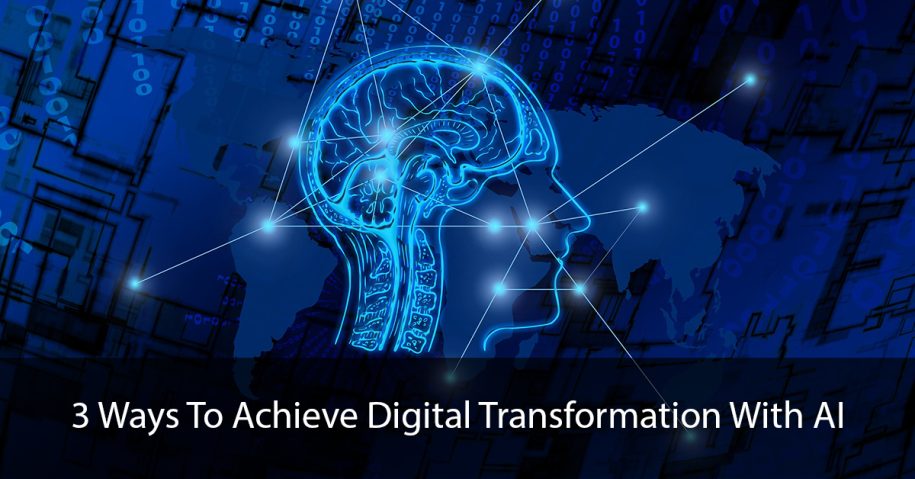According to Peter Boghossian, an American philosopher, one of the ten easy steps to destroy civilization is to claim that, ‘science, reason, and rationality are tools of oppression.’ Hence, the need for the continuous evolution of the scientific processes. This advancement has brought about Artificial Intelligence. It has recently transformed how businesses, economies, and production processes are being handled.
What Is Artificial Intelligence
Artificial Intelligence (AI) is the simulation of human intelligence in machines to mimic human actions, such as; learning, problem-solving, optical recognition, speech recognition, and planning. AI processes large amounts of data and makes predictions with such data faster and more accurately. An example is a chatbot where its customer’s problems are understood in time, and more practical answers are given.
Gains Of Digital Transformation With AI
Technological transformation, no doubt, has been nothing new to us. However, AI has proven to be a game-changer. There are always new ways of delivering value to customers while transforming the underlying economics of markets. There has been a rapid increase in performance and production linked to AI. Like in the earlier instance of chatbots, the use of AI in chatbot technology has optimized the range of solutions it can offer. Thereby enhancing customer communication and relationships. Not to mention the agile and customized response tailored to suit every client.
As well known, the influence of AI cuts across almost all sectors, from finance to industrial production, agriculture, businesses and entertainment, etc. This has led to outstanding gains and can be linked to the automation of processes and tasks.
Companies that successfully integrate AI into their operations grow faster than their competitors. In other words, there is a maximized return on capital and improved profitability for such businesses. For instance, AI aided Netflix’s 25% growth as an outcome of digital transformation. Also, Amazon has garnered a lot of gains through its web services, Amazon prime, and other subsidiaries. Sourcing its users’ data means predictions of each client’s needs are met. Amazon uses the data to scout other clients with similar profiles. This AI-aided method accumulated a whooping $87.4 Billion in Q4 2019.
Achieving Digital Transformation With AI
Digital transformation, which is the remaking of a process using digital technologies to maximize profit and efficiency, integrates elements of AI as one of the essential change components besides Cloud technology, big data, and real-time analytics, augmented reality. The integration of AI changes the entire business outlook. The critical areas of digital transformation in business include;
1. Using AI to transform the operating model: With AI, companies automate existing operating model functions, thereby cutting costs, optimizing outcomes, increased repeatability and efficiency in general. The success recorded by Amazon can be linked to AI in automating its processes. AI is a perfect tool for automating tasks and making complex decisions.
2. Transformation of the Business model: Here, re-evaluation or expansion of the business model takes place. With AI, strategic impact (e.g., revenue growth, lifetime customer value, time to market), operational impact (e.g., productivity improvements, scale, operational efficiencies), and cost impact are accessed. Digital transformation is continually evolving and can fade out and make traditional Business value and calculation less effective.
3. Optimization of the business function: Recognised as one of the most common forms of digital transformation, its impact on the IT sector has been enormous.
Conclusion
In conclusion, digital transformation can be aided by AI to a large extent. However, adapting other tech tools, such as cloud technology, could greatly expand the efficiency of digital transformation. Understand how AI Impacts APM.










